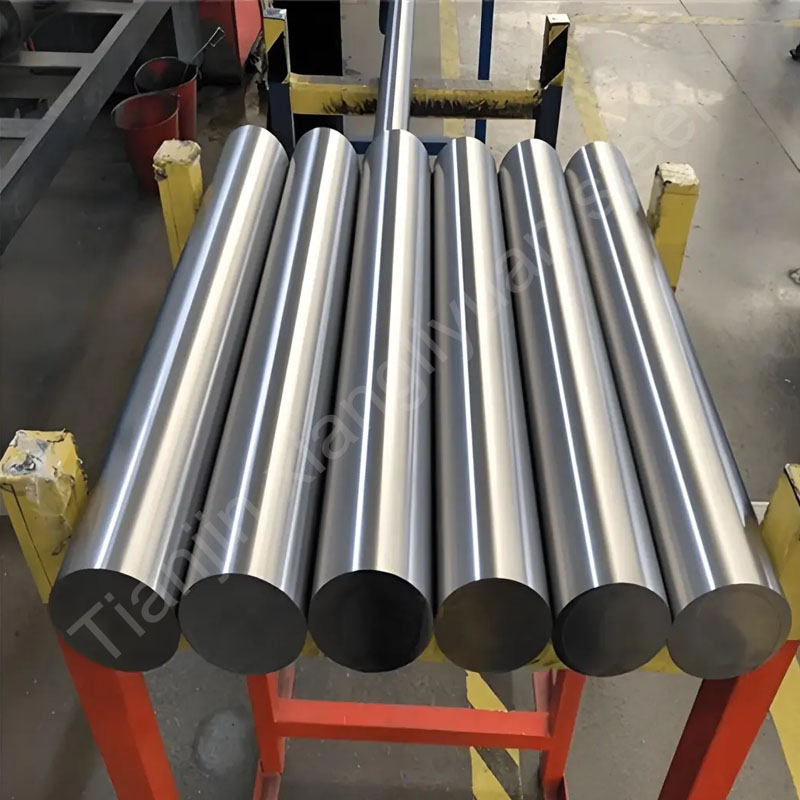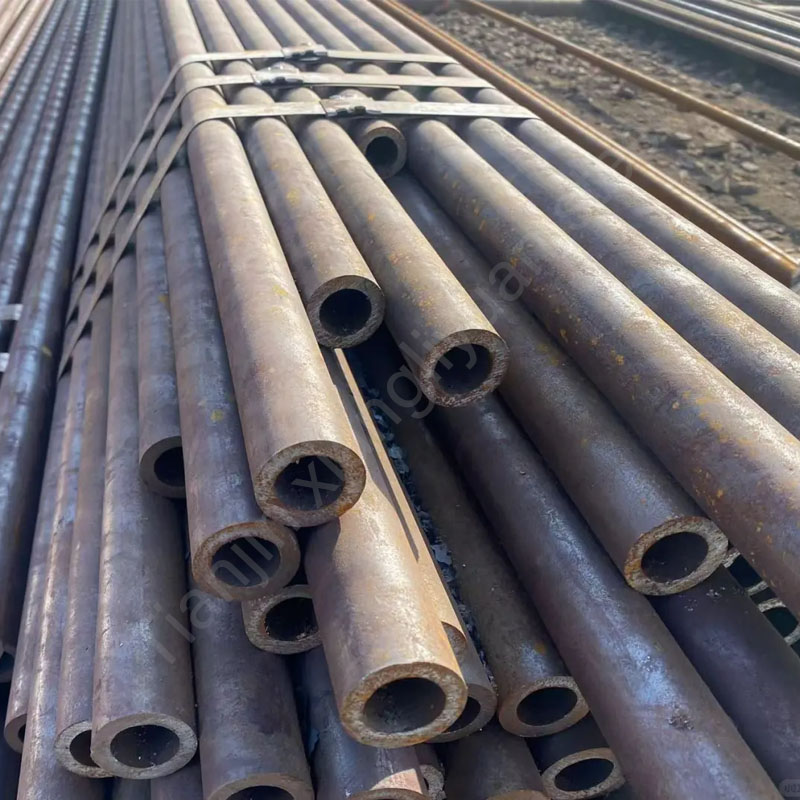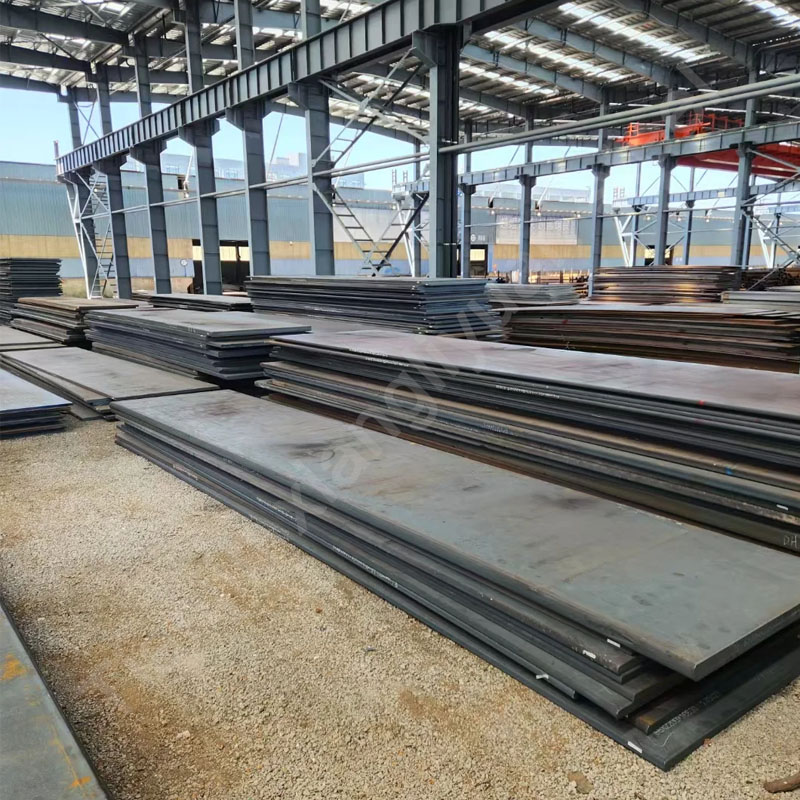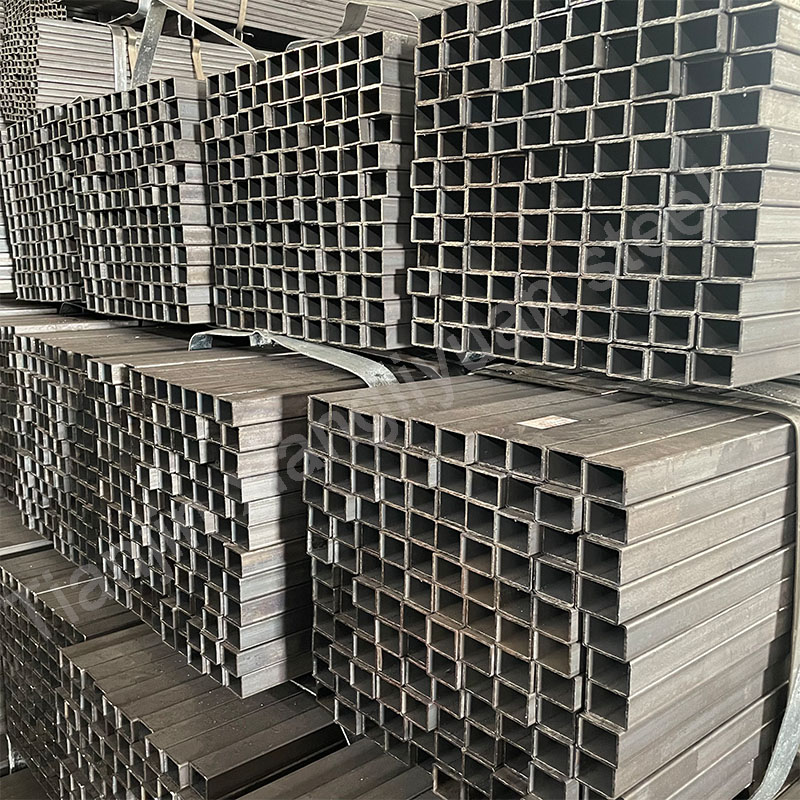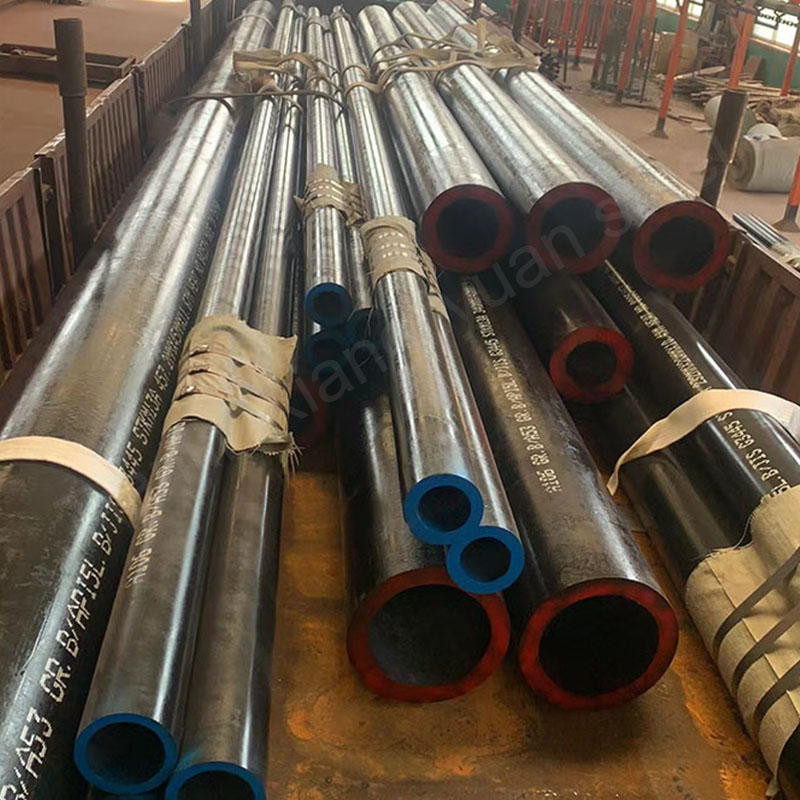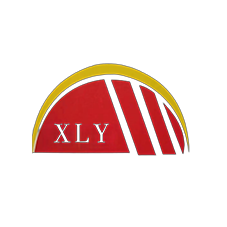In the vast world of steel, carbon steels and standard alloy steels like 4140 or 4340 form the essential backbone of countless industries. But when applications demand exceptional performance under extreme stress, corrosive environments, searing heat, or intense wear, ordinary steels simply reach their limits. This is where the remarkable world of Special Alloy Steels takes center stage.
As a leading supplier deeply committed to empowering innovation and solving complex engineering challenges, we specialize in providing a comprehensive range of these high-performance materials. We understand that sourcing the right special alloy steel is critical to the success, safety, and longevity of your projects. This article delves into the diverse landscape of special alloy steels, highlighting their unique properties, key applications, and the crucial parameters discerning international buyers prioritize.
Why Special Alloy Steels? The Answer Lies in Extreme Performance
Special alloy steels are meticulously engineered by incorporating significant proportions of alloying elements beyond just carbon, manganese, silicon, and the typical additions found in standard alloys. Elements like Nickel (Ni), Chromium (Cr), Molybdenum (Mo), Cobalt (Co), Tungsten (W), Vanadium (V), Niobium (Nb), Titanium (Ti), and Aluminum (Al) are strategically combined, often in complex ways, to impart specific, enhanced characteristics:
Unmatched High-Temperature Strength & Creep Resistance: Maintaining structural integrity and mechanical properties (tensile strength, yield strength) at temperatures where standard steels soften and fail.
Superior Corrosion & Oxidation Resistance: Withstanding aggressive chemicals, acidic/alkaline environments, saltwater, and high-temperature oxidation far better than stainless steels like 304 or 316.
Exceptional Wear & Abrasion Resistance: Providing extended service life in components subjected to constant friction, impact, or abrasive particles.
Enhanced Toughness at Cryogenic Temperatures: Performing reliably in extreme cold without becoming brittle.
Unique Magnetic or Electrical Properties: Tailored for specific electronic or power generation applications.
Controlled Thermal Expansion: Critical for applications requiring dimensional stability across wide temperature ranges.
Navigating the Spectrum: Key Categories of Special Alloy Steels
Let’s explore the major families, highlighting critical parameters buyers demand:
1. High-Temperature Alloys (Superalloys & Heat-Resistant Steels)
These materials defy the intense heat encountered in aerospace, power generation, and industrial processing.
Nickel-Based Superalloys (e.g., Inconel®, Hastelloy®, Nimonic®, Haynes®):
Key Parameters: Creep Rupture Strength (1000h+ values at target temp), Oxidation Resistance Temperature Limit, Tensile/Yield Strength at Temperature, Microstructural Stability (gamma prime γ’ formation), Weldability, Formability.
Crucial Properties: Outstanding strength retention and creep resistance above 650°C (1200°F), exceptional oxidation and carburization resistance, good fatigue life.
Common Grades & Applications:
Inconel 600®: Furnace components, chemical processing.
Inconel 625®: High-strength marine, aerospace, chemical (excellent weldability, corrosion resistance).
Inconel 718®: Aerospace turbine engines (high strength to ~650°C), cryogenic vessels.
Hastelloy C-276®: Severe chemical environments (HCl, H2SO4), pollution control.
Hastelloy X®: Combustors, afterburners (excellent oxidation resistance to 1200°C).
Haynes 230®: High temp industrial furnaces, heat treating fixtures (superior oxidation resistance, thermal stability).
Nimonic 80A/90: High-stress turbine blades, discs.
Cobalt-Based Superalloys (e.g., Haynes® 25/L605, Stellite®):
Key Parameters: Wear Resistance (Pin-on-Disk, ASTM G65), Hot Hardness, Corrosion Resistance in specific media, Weldability (often used as hardfacing).
Crucial Properties: Superior hot hardness and wear resistance, good corrosion resistance, excellent galling resistance.
Applications: Gas turbine vanes/nozzles, wear surfaces (valves, seats), cutting tools, biomedical implants. *Haynes 25/L605* is also widely used in aerospace.
Iron-Nickel-Chromium Superalloys (e.g., Incoloy®, N155, RA330®):
Key Parameters: Oxidation Resistance Limit, Carburization/Nitridation Resistance, Strength at Temperature, Thermal Fatigue Resistance.
Crucial Properties: Excellent oxidation resistance, good strength and creep resistance at high temperatures (typically 600-1150°C), often more cost-effective than Ni/Co-base alloys.
Common Grades & Applications:
Incoloy 800H/800HT®: Heat treating baskets, radiant tubes, petrochemical crackers (high creep strength).
Incoloy 825®: Chemical processing, acid production (excellent corrosion resistance to sulfuric/phosphoric acid).
RA330®: High-temperature furnaces, heat treating fixtures (superior oxidation/carburization resistance).
N155 (Multimet®): Gas turbine combustion chambers, afterburners.
2. Corrosion-Resistant Alloys (CRAs) – Beyond Standard Stainless
For environments too harsh for 316L or duplex, these offer superior protection.
High-Performance Austenitic Stainless Steels:
Key Parameters: Pitting Resistance Equivalent Number (PREN = %Cr + 3.3x%Mo + 16x%N), Critical Pitting Temperature (CPT), Critical Crevice Corrosion Temperature (CCT), Strength, Fabricability.
Crucial Properties: Elevated levels of Cr, Mo, and N dramatically increase resistance to pitting, crevice corrosion, and stress corrosion cracking (SCC).
Common Grades & Applications:
254 SMO® (UNS S31254): Seawater (cooling systems, desalination), chemical processing, pulp & paper (PREN >43).
AL-6XN® (N08367): Similar applications to 254 SMO, excellent SCC resistance (PREN >45).
Alloy 20 (Carpenter 20®/UNS N08020): Sulfuric acid handling, chemical plants (resists H2SO4, chloride SCC).
904L (UNS N08904): High-alloy general purpose CRA for acids, seawater (PREN ~36).
Duplex & Super Duplex Stainless Steels:
Key Parameters: PREN, Minimum Yield Strength (typically 450-550 MPa min), Impact Toughness (especially at low temp), H2S Resistance (NACE MR0175/ISO 15156), Weld Procedures.
Crucial Properties: Dual-phase microstructure (austenite + ferrite) provides high strength (2x 316L), excellent chloride SCC resistance, good pitting/crevice resistance, good wear resistance.
Common Grades & Applications:
2205 (UNS S32205/S31803): Offshore oil & gas (pipelines, topsides), chemical tankers, desalination plants (PREN ~34-38).
2507 (UNS S32750): Super Duplex – More demanding offshore, seawater systems, FGD scrubbers (PREN >40).
Zeron 100® (UNS S32760): Super Duplex – High strength, excellent corrosion/wear resistance (PREN >40).
LDX 2101® (UNS S32101): Lean Duplex – Cost-effective alternative to 304/316 where higher strength/corrosion resistance needed.
Nickel Alloys for Corrosion:
Key Parameters: Corrosion Rate in specific acid/alkali/concentration/temperature combinations, SCC Resistance, Fabrication Characteristics (work hardening).
Crucial Properties: Unparalleled resistance to a vast range of corrosive media, including reducing acids (HCl, H2SO4), oxidizing acids (HNO3), caustics, and seawater.
Common Grades & Applications: (Many overlap with High-Temp section due to dual utility)
Hastelloy C-276/C22/C2000®: Severe chemical processing, pollution control (broadest corrosion resistance).
Inconel 625®: Seawater, marine, chemical (excellent chloride SCC/pitting resistance).
Monel® 400/K-500: Seawater, HF acid, alkalies (excellent resistance).
Nickel 200/201: Caustic soda production, food processing (high purity, excellent caustic resistance).
3. Tool & Die Steels
Engineered for shaping other materials under high pressure, heat, and abrasion.
Key Parameters: Hardness (HRC after heat treat), Hot Hardness, Wear Resistance, Toughness (Impact Strength), Dimensional Stability during Heat Treatment, Polishability.
Crucial Properties: High carbon combined with Cr, W, Mo, V form hard carbides for wear resistance. Specific grades balance hardness, toughness, and resistance to softening at elevated temperatures.
Major Categories & Key Grades:
Cold Work (e.g., D2, A2, O1): High hardness/wear for punching, blanking, forming dies at ambient temps. Buyers focus on wear resistance, toughness balance.
Hot Work (e.g., H13, H11, H21): Retain strength/hardness at high temps (400-600°C) for die casting, extrusion, forging dies. Buyers focus on hot hardness, thermal fatigue resistance.
High-Speed Steels (HSS) (e.g., M2, M42, T1): Cutting tools (drills, taps, milling cutters). Exceptional red hardness (up to 600°C). Buyers focus on hot hardness, wear resistance, grindability.
Plastic Mould Steels (e.g., P20, 420SS, S7): Good polishability, corrosion resistance, hardness/toughness balance for injection molds. Buyers focus on polishability, corrosion resistance, machinability pre-hard.
4. Ultra-High Strength Steels (UHSS)
Pushing the boundaries of strength-to-weight ratio for aerospace and defense.
Key Parameters: Minimum Yield Strength (YS > 1380 MPa / 200 ksi), Minimum Tensile Strength (UTS), Fracture Toughness (K1C), Fatigue Strength (S-N Curve), Stress Corrosion Cracking Threshold (K1SCC), Weldability/Formability Constraints.
Crucial Properties: Achieve extraordinary strength through complex alloying and sophisticated heat treatments (maraging, secondary hardening). Balancing strength with toughness and SCC resistance is paramount.
Common Grades & Applications:
AerMet® 100/340: Aerospace landing gear, fasteners (YS > 1725 MPa, good toughness).
Maraging Steels (e.g., 18Ni 250/300, C250/C300): Missile casings, high-pressure vessels, tooling (YS 1700-2400 MPa, excellent toughness, simple heat treat). *Buyers focus on YS/UTS, K1C, K1SCC.*
300M (Modified 4340): Aircraft landing gear (high strength, good fatigue).
Hy-Tuf®: High toughness applications requiring ~1400 MPa YS.
5. Other Specialized Categories
Nitriding Steels (e.g., Nitralloy® N, 4140 Mod): Optimized for surface hardening via nitriding, producing a hard, wear-resistant case. Key Parameters: Core Hardness, Case Depth, Case Hardness.
Cryogenic Steels (e.g., 9% Ni Steel, 304/316L, specific Alum alloys): Maintain ductility and toughness at temperatures down to -196°C (LNG). *Key Parameters: Impact Toughness at Temp (e.g., Charpy V-Notch at -196°C), Yield Strength at Temp.*
Electrical Steels (Silicon Steels): Engineered magnetic properties for motors, transformers (minimize core loss, maximize permeability). Key Parameters: Core Loss (W/kg at specified freq/flux), Permeability.
What Discerning International Buyers Demand: Beyond the Grade Name
When sourcing special alloy steels, sophisticated buyers look far deeper than just the alloy designation. They require assurance on critical factors impacting performance, reliability, and compliance:
1.Precise Compliance to Specifications: Material must meet or exceed the requirements of international standards like ASTM, ASME, EN, DIN, JIS, NACE MR0175/ISO 15156 (for sour service), AMS (Aerospace), and customer-specific specifications. Mill Test Certificates (MTCs/CMTRs) are non-negotiable.
2.Traceability & Quality Assurance: Full material traceability from melt (heat number) through processing is essential. Rigorous QA/QC procedures, including certified chemical analysis and mechanical testing reports, are mandatory. Third-party inspection (e.g., Lloyds, DNV, ABS) is often required.
3.Controlled Chemistry & Heat Treatment: Minor variations in alloying elements or heat treatment parameters (time, temperature, atmosphere, quench rate) can drastically alter properties. Suppliers must demonstrate strict process control and documentation (e.g., heat treat charts).
4.Verified Mechanical Properties: Guaranteed minimums for Tensile Strength, Yield Strength, Elongation, Reduction of Area, Hardness, and Impact Toughness (at specified temperatures) are critical. Testing must be performed by accredited labs according to standards (ASTM E8, E23, etc.).
5.Surface Condition & Dimensions: Precise dimensional tolerances (ASTM A484, EN standards) and controlled surface finishes (e.g., peeled, ground, polished, pickled) are vital for machining, welding, and final performance. Protection against damage and corrosion during transit is key.
6.Form & Availability: Reliable supply in the required forms (bar, plate, sheet, tube, pipe, wire, forgings, castings) and sizes, often with demanding lead times.
7.Technical Expertise & Support: Suppliers must offer deep metallurgical knowledge to assist with grade selection, processing recommendations (machining, welding, heat treatment), and troubleshooting application problems. Responsiveness is crucial.
8.Competitive Pricing & Logistics: While quality is paramount, cost-effectiveness and reliable global logistics capabilities are significant factors.
Why Partner with Us for Your Special Alloy Steel Needs?
We are not just another steel distributor. We are your dedicated partner for high-performance materials. Here’s what sets us apart:
Unparalleled Breadth & Depth: We maintain one of the industry’s most extensive and readily available inventories of special alloy steels across all major categories – Superalloys, CRAs, Tool Steels, UHSS, and more. From common grades like 2205 Duplex or H13 to niche alloys like Haynes 282 or Maraging C350, we source globally to meet your demands.
Uncompromising Quality & Certification: Every shipment is backed by full traceability and certified Mill Test Reports meeting ASTM, ASME, EN, and other major international standards. We partner with mills renowned for their quality and consistency. NACE MR0175 compliance for sour service grades is standard where applicable.
Technical Mastery: Our team comprises seasoned metallurgists and engineers. We don’t just sell material; we provide expert guidance on:
Optimal grade selection for your specific application and environment.
Machining, welding, and heat treatment best practices.
Interpretation of specifications and standards.
Troubleshooting material performance issues.
Global Supply Chain Excellence: Leveraging strong mill relationships and strategic logistics partnerships, we ensure reliable, timely delivery worldwide, whether you need standard stock sizes or custom-melted material. We understand international shipping complexities.
Value-Added Processing: Beyond supply, we offer various processing services (precision cutting, heat treatment coordination, surface treatment) to streamline your production.
Commitment to Partnership: We build long-term relationships based on trust, reliability, and a shared goal of solving your most challenging material problems.
Conclusion: Elevate Your Engineering with the Right Special Alloy Partner
Special alloy steels are the enabling materials for technological advancement in the most demanding sectors – aerospace, energy, chemical processing, oil & gas, medical, and advanced manufacturing. Choosing the right grade is critical, but equally important is choosing a supplier with the expertise, inventory breadth, quality commitment, and global capabilities to deliver reliably.
We invite engineers, procurement specialists, and fabricators worldwide to explore our comprehensive range of special alloy steels. Let our technical expertise and extensive inventory be your competitive advantage. Contact us today to discuss your specific requirements and discover how we can become your trusted partner for high-performance material solutions.

